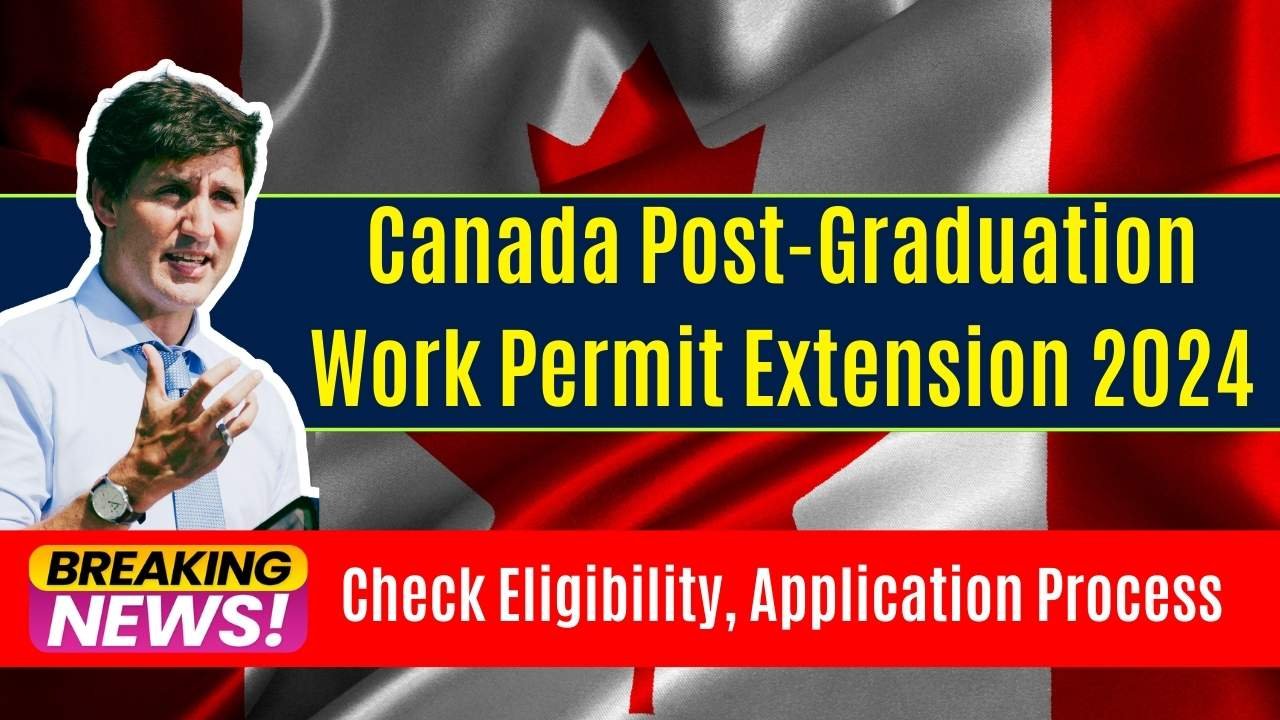The PGWP Extension 2024 has introduced a major opportunity for international students in Canada. With this new policy introduced by IRCC in August 2024, those with expiring or expired Post-Graduation Work Permits (PGWP) can now apply for an Open Work Permit. This extension provides additional time to work in Canada and offers a pathway for those aiming for Permanent Residency (PR).
What is the PGWP Extension 2024?
Previously, the PGWP was a one-time, non-renewable permit. Once it expired, graduates had to either leave Canada or seek other visa options. However, the 2024 PGWP extension changes this, allowing eligible graduates additional time to stay and gain valuable Canadian work experience.
Who is Eligible for the PGWP Extension in 2024?
You may qualify for this extension if:
- Current PGWP Holders: Your work permit is still valid.
- Expired PGWP Holders: Your permit was valid on May 7, 2024, but has since expired.
- Special Cases: If you had authorization to work on May 7, 2024, and are awaiting the result of your extension application.
How to Apply for the PGWP Extension
- Verify Your Eligibility:
- Your PGWP is valid until December 31, 2024, or
- Your PGWP expired after May 7, 2024.
- Prepare Necessary Documents:
- Obtain a support letter from your provincial authority.
- Get a letter of employment from your employer.
- Any other documents required under section 200 of the Immigration Regulations.
- Submit Your Application:
- Apply for an open work permit under section 200 of the Immigration and Refugee Protection Regulations.
- Include your support letter and employment letter.
- If your PGWP has expired, you will also need to apply for restoration of temporary resident status under section 182.
The PGWP Extension 2024 policy represents a significant step towards enhancing the prospects for international graduates in Canada, giving them the chance to gain meaningful work experience and potentially transition to permanent residency.
PGWP Canada New Rules
A critical component of these changes is the introduction of a “field of study” requirement for graduates from colleges and non-degree programs. IRCC confirmed that university graduates will remain eligible for PGWPs of up to three years, without any restrictions based on their field of study.
PGWP Eligibility Requirements: Canada’s Latest Update on Post-Graduation Work Permits
Canada has recently updated its PGWP eligibility requirements, making it essential for international students to understand these new guidelines if they plan to work in Canada post-graduation. The Post-Graduation Work Permit (PGWP) is crucial for those seeking Canadian work experience, and these changes could impact eligibility. Let’s dive into what the new PGWP eligibility requirements mean for you.
1. Understanding the Importance of PGWP in Canada
The Post-Graduation Work Permit (PGWP) program allows eligible international students to work in Canada after completing their studies at qualified institutions. The PGWP is a stepping stone for those who aspire to gain Canadian work experience and potentially apply for permanent residency. However, Canada’s PGWP eligibility requirements have undergone significant updates, and meeting these new requirements is now crucial.
2. New PGWP Eligibility Requirements for 2024
The Canadian government, through Immigration, Refugees, and Citizenship Canada (IRCC), has introduced new PGWP eligibility requirements that are more specific to certain fields of study. As of November 1, 2024, only students graduating from designated programs will qualify for a PGWP. These programs include:
- Agriculture and Agri-food
- Healthcare
- STEM (Science, Technology, Engineering, and Mathematics)
- Trade
- Transport
The updated PGWP eligibility requirements now mandate that applicants meet these field criteria to be eligible. For those who apply before the November deadline, the current eligibility rules will still apply.
3. Language Proficiency and PGWP Eligibility Requirements
A notable addition to the PGWP eligibility requirements is the introduction of language proficiency standards. PGWP applicants must now demonstrate language skills in reading, writing, listening, and speaking. For those with university degrees, the minimum level required is Canadian Language Benchmark (CLB) 7 in English or Niveaux de compétence linguistique canadiens (NCLC) 7 in French. College graduates must achieve at least CLB 5 or NCLC 5.
Meeting these language requirements is essential to fulfilling the PGWP eligibility requirements. These standards aim to ensure that PGWP holders can effectively contribute to Canada’s workforce.
4. Exemptions to PGWP Eligibility Requirements for University Degrees
Under the revised PGWP eligibility requirements, students with Bachelor’s, Master’s, or Doctoral degrees from Canadian universities are exempt from the new field of study criteria. They remain eligible for a PGWP for up to three years as long as they meet other conditions.
5. Impact of PGWP Eligibility Requirements on International Students
The updated PGWP eligibility requirements align with Canada’s goal to manage temporary resident numbers. The IRCC aims to reduce the number of study permits issued, affecting students and institutions alike. For students, it’s essential to choose programs aligned with the new eligibility fields to qualify for a PGWP.
Stakeholders, such as universities and advocacy groups, have raised concerns over fields like hospitality not being included in the PGWP eligibility requirements. These exclusions could impact regional economies that rely on international students trained in such fields. Aligning PGWP eligibility requirements with Canada’s labor market needs is part of a broader immigration strategy to support long-term economic goals.
The new PGWP eligibility requirements are pivotal for any international student planning to stay and work in Canada after graduation. Understanding these requirements ensures you can make informed decisions about your education and future career in Canada.
